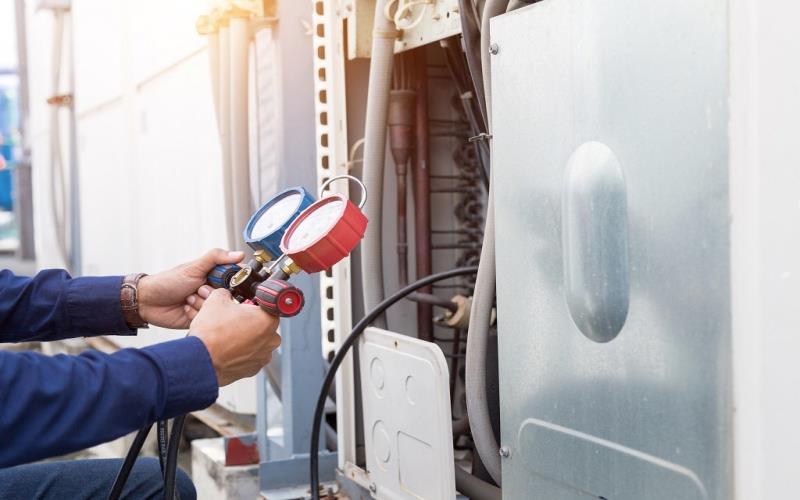Selecting the right HVAC system is essential for designing a functional and pleasant living or working area. It impacts your degree of comfort, energy costs, and environmental effects.
When selecting an HVAC, you should consider the balance of comfort and efficiency.
Discover the perfect harmony between comfort and efficiency for your home with the right HVAC system; for top-notch HVAC and plumbing services in Post Falls, WA, check out Hurliman.
1. Location
The environment or area where the HVAC system will be placed should be considered while choosing one. Variations in temperature, humidity, and air quality across different places influence the optimal system type in terms of effectiveness and efficiency.
Central air conditioners are the most suitable for humid climates. Meanwhile, heat pumps and furnaces work better in colder climates.
2. Size and capacity
It’s important to select the HVAC system that fits your space. A correctly sized system is essential to maintaining a comfortable temperature. If the system is too large, it will turn on and off more frequently. This wastes energy and wears out the system. A professional HVAC tech can do a load calculation in order to determine what size is best for your room.
3. Energy efficiency ratings
The energy rating of your HVAC system is very important. This includes the Seasonal Energy Efficiency Rating for air conditioner units and the Annual Fuel Utilization Efficiency for furnaces. The higher the rating, the more efficiently the system converts energy into cool or heated air.
4. Maintenance requirements
Maintaining your HVAC system is essential to its longevity and efficiency. Some systems require intensive or more frequent maintenance, like cleaning coils, changing filters, or annual tune-ups. Selecting an HVAC system requires you to consider maintenance costs and requirements carefully.
5. Programmable thermostat
The efficiency of your HVAC unit can be greatly improved by purchasing a programmable device. These devices allow you to schedule heating and cooling to reduce energy usage while you are at home or sleeping.
6. Indoor air quality
HVAC systems not only regulate temperature but also contribute to the quality of indoor air. This is particularly significant for individuals with allergies or respiratory issues.
When selecting an HVAC system, consider opting for features like air purifiers, ventilators, and dehumidifiers. These additional features can further enhance your space’s comfort and overall well-being by ensuring clean and fresh air circulation.
7. Cost
Of course, cost is another essential factor to consider when selecting an HVAC system. The initial cost of purchasing and installing a system, as well as continuing energy and maintenance costs, should all be considered.
Finding the correct balance between upfront costs and long-term efficiency savings is essential. Additionally, investing in a high-quality system may result in a longer lifespan and fewer replacements, ultimately saving money in the long run.
8. Energy sources
Regarding your HVAC system, the choice of energy source can significantly affect both its efficiency and environmental impact. Several options exist, including natural gas, electricity, propane, and geothermal energy. Each energy source has its unique characteristics and advantages.
For example, natural gas is often readily available and cost-effective, while geothermal energy harnesses the Earth’s natural heat. By carefully evaluating each energy source’s availability, cost, and environmental considerations, you can make an informed conclusion that aligns with your needs and values.

